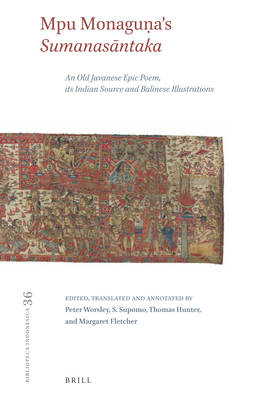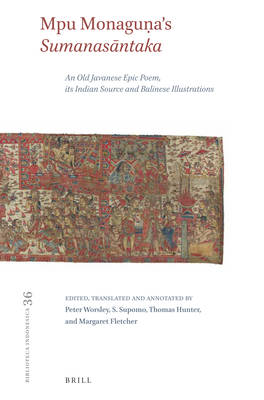
- Afhalen na 1 uur in een winkel met voorraad
- Gratis thuislevering in België vanaf € 30
- Ruim aanbod met 7 miljoen producten
- Afhalen na 1 uur in een winkel met voorraad
- Gratis thuislevering in België vanaf € 30
- Ruim aanbod met 7 miljoen producten
Zoeken
Mpu Monaguṇa's Sumanasāntaka
€ 239,45
+ 478 punten
Omschrijving
In Mpu Monaguṇa's Sumanasāntaka, the authors offer an edited text and translation of Mpu Monaguṇa's early thirteenth century epic kakawin Sumanasāntaka along with extensive commentary on the history of the poem and its story in India, Java and Bali.
Specificaties
Betrokkenen
- Uitgeverij:
Inhoud
- Aantal bladzijden:
- 732
- Taal:
- Engels
- Reeks:
- Reeksnummer:
- nr. 36
Eigenschappen
- Productcode (EAN):
- 9789004252035
- Verschijningsdatum:
- 11/07/2013
- Uitvoering:
- Hardcover
- Formaat:
- Genaaid
- Afmetingen:
- 163 mm x 241 mm
- Gewicht:
- 1247 g

Alleen bij Standaard Boekhandel
+ 478 punten op je klantenkaart van Standaard Boekhandel
Beoordelingen
We publiceren alleen reviews die voldoen aan de voorwaarden voor reviews. Bekijk onze voorwaarden voor reviews.







